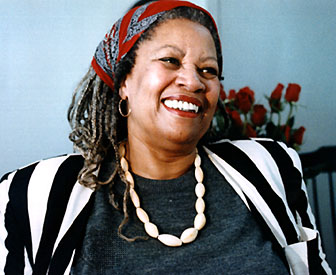 |
| Tomas Tranströmer (center), receiving the 2011 Nobel Prize for Literature |
Last December I came across Rachel Friedman's New York Magazine listicle, entitled "Livelihood of the Poets," about the microeconomics of poetry, which I could not find the time to post to this blog, but which I am now linking to, since Poetry Month is better than never. Friedman's focus was the sales bump and monetary rewards the most recent Nobel Laureate, Tomas Tranströmer, garnered, but the glib piece, comprising selective charts and minimal commentary, mainly served to show how financially unrewarding the poetry field, narrow understood as teaching and selling books, can be. Even accounting for downscaled projections, Friedman's numbers--which I have not verified--do open the eyes. Here are just a few, but if you click on the link above, you can see the rest of the short piece for yourself. One thing they underline is why so many poets nowadays have a back-up plan of getting, at the very least an MFA or a PhD, why so many hustle books and journals and zines out like pancakes, why the stakes of publishing and being publicly championed really are higher than many non-poets might imagine or admit, and why so many poets are looking for angles, on themselves, their work, the world, anything. Unless you're rich or know how to set your work to (country) music, you'd better scramble, or you'll starve. But back to Friedman; the snarky titles are hers, not mine, as are the typos.
THE WASTELAND
Estimated poetry M.F.A.’s [sic] awarded, according to M.F.A.-world blogger Seth Abramson, in …
2001: 700
2006: 1,000
2011: 1,400
Approximate number of jobs available to teach [sic] M.F.A. programs: 750
and
WIDELY KNOWN IN NARROW CIRCLESPoetizing ain't no jive. Be kind, buy some books of poetry by LIVING POETS as well as the not-so-living ones, and please read them. As a former professor (and very acclaimed fiction writer) of mine told me and my fellow fiction-writing classmates, "You can always learn from the poets." Even (especially) if you're a poet, even if not.
Best-selling poetry books of 2011
Horoscopes for the Dead / Billy Collins
Copies sold: 18,406
*Author’s est. earnings: $44, 177
Leavings / Wendell Berry
Copies sold: 2, 928
*Author’s est. earnings: $4,377
Come, Thief / Jane Hirshfield
Copies sold: 2,250
*Author’s est. earnings: $5,625
*Assumes a 10 percent royalty rate.
282,000 Copies of Tim Tebow’s autobiography, Through My Eyes, sold since its May release.
‡‡‡
 |
| Henry James |
 |
| Toni Morrison |
( 1.) Henry James (3,188 items) [+1]
( 2.) William Faulkner (2,955) [-1]
( 3.) T. S. Eliot (2,659) [+1]
( 4.) Herman Melville (2,579) [-1]
( 5.) Vladimir Nabokov (2,290) [+5]
( 6.) Ernest Hemingway (2,220) [-0-]
( 7.) Edgar Allan Poe (1,958) [-2]
( 8.) Toni Morrison (1,950) [+9]
( 9.) Nathaniel Hawthorne (1,751) [-4]
(10.) Walt Whitman (1,647) [-2]
(11.) Emily Dickinson (1,623) [+2]
(12.) Ezra Pound (1,620) [-3]
(13.) Willa Cather (1,482) [+5]
(14.) Ralph Waldo Emerson (1,326) [-3]
(15.) Wallace Stevens (1,122) [-1]
(16.) Edith Wharton (1,087) [+5]
(17.) Henry David Thoreau (1,076) [-5]
(18.) F. Scott Fitzgerald (1,002) [-3]
(19.) Flannery O’Connor (935) [+3]
(20.) Mark Twain (882) [-4]
(21.) John Steinbeck (823) [+2]
(22.) William Carlos Williams (772) [-0-]
(23.) Saul Bellow (706) [+2]
(24.) Richard Wright (670) [+2]
(25.) Robert Frost (661) [-5]
There are only 5 women, 2 black folks--and 1 person who could be considered latino (Williams) on this list, though I would argue that he usually is not. Not 20 women and 10 black people (or any latinos or latinas, any asian-americans, etc.). There are also 2 openly queer people--Walt Whitman and Willa Cather--on this list. Not 15, etc. One of these women also is one of the black people, and she is still writing and living among us, and her name is Toni Morrison, and she received the Nobel Prize in Literature. (She is the only living person on this list.) The other four women are all deceased; one wrote brilliantly in obscurity in the 19th century, two at the turn of the 20th, the last was one of the greatest short-story writers the United States has produced. So there you go: these are who literary scholars are writing about, not whose books are flying off shelves, not whom Harold Bloom (or Helen Vendler or anyone else including people claiming to be open-minded but basically reinscribing this same tired reactionary rhetoric) is convinced no longer even makes her or his way into a dissertation, let alone a classroom, not the who the people who are endlessly whining about the leftist, anti-Western canon, Marxist, Socialistic professoriate claim have supplanted these hardy souls, etc. I would imagine that were Myers or anyone else to do a similar survey of the most frequently appearing British authors since 1987, we could probably guess who would appear in the top 25 (the first gentleman's name, I would surmise, begins with an "S" and ends with an "e," and rhymes with "Bakes here"....)
If and when you hear anyone who has not recently set foot in an English department that teaches American literature or trains people to do so start yapping about how faculty and graduate students in American literature are studying everyone but the folks above--THE CANON, as it has existed for some time--please direct them not even to this blogpost, but to Myers, since they're more likely to believe him than me.
(BTW, do look at the comments. Some are, as such outbursts of expressivity on such sites always are, priceless.)









No comments:
Post a Comment